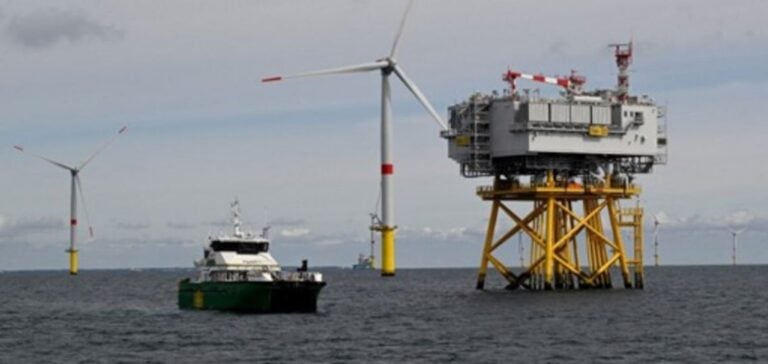Scottish justice is currently examining a legal challenge filed by environmental NGOs Greenpeace and Uplift regarding the government’s authorization to develop the Rosebank and Jackdaw oil fields, located in the North Sea. The two organizations denounce these authorizations as incompatible with the UK’s climate commitments, arguing that the environmental impact of these projects was inadequately considered by the authorities.
The case, which is taking place in Edinburgh’s Court of Session, follows a series of judicial decisions unfavorable to hydrocarbon projects. Most recently, the British Supreme Court invalidated a drilling permit at Horse Hill in southern England for failing to assess emissions related to the consumption of extracted hydrocarbons. Armed with this precedent, the NGOs hope to prevail in the Rosebank and Jackdaw cases.
A Climate Issue at the Heart of the Debate
Greenpeace and Uplift accuse the British government of failing to integrate the full environmental impact into the evaluations of the Rosebank and Jackdaw projects. Their arguments rest on the claim that emissions linked to the combustion of extracted oil and gas were not adequately considered, an omission that would contravene national climate goals.
According to Tessa Khan, executive director of Uplift, this legal battle is crucial for the future of North Sea drilling. “We are more confident than ever about our chances of winning,” she stated before the start of the hearing, highlighting the growing support from environmental activists.
Potential Impacts on Future Hydrocarbon Projects
If the court rules in favor of the plaintiffs, the decision could have implications for other hydrocarbon projects. Tommy Sheppard, former Scottish National Party (SNP) MP, indicated that this case could disrupt the approval process for new projects. “It will have broader applications to the decision-making process,” he asserted, referring to the roughly 100 licenses recently granted by the previous Conservative government.
The Rosebank field, located 145 kilometers from the Shetland Islands, is considered the UK’s largest untapped oil field, with reserves estimated at 300 million barrels. As for the Jackdaw gas field, approved in 2022, it is set to start production next year, 250 kilometers off the coast of Aberdeen.
A Change of Direction Under the New Government
Last month, the newly elected Labor government decided not to defend these controversial authorizations in court. This decision has bolstered the hopes of project opponents, who see it as an initial step toward a more climate-conscious policy.
The oil and gas fields in question are owned by two energy giants: Rosebank is owned by Equinor, the Norwegian energy group, and Ithaca Energy, while Jackdaw is operated by Shell. Upcoming decisions could force these companies to reassess their projects and submit new environmental assessments before proceeding with their operations.






















